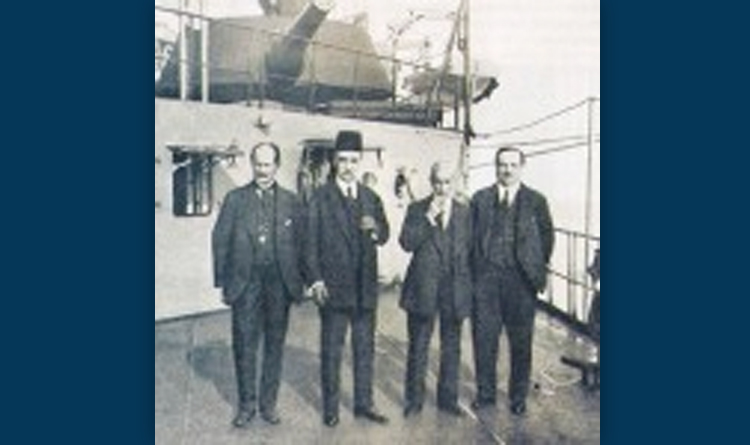Treaty of Sevres Dissolves the Ottoman Empire

August 10, 1920
Following the San Remo conference in April 1920 (see: https://israeled.org/herbert-samuel-appointed-first-high-commissioner-palestine-san-remo-conference/) at which the victorious Allied powers in World War I created a plan for the breakup of the Ottoman Empire, a treaty is signed between the Allies and the Ottoman Empire in the town of Sevres, France. On the same day, the British, French and Italian Governments sign a secret Tripartite Agreement which outlines each power’s interests in the former Ottoman possessions.
In addition to breaking up the Ottoman Empire, the Treaty also called for the creation of an independent Armenia, an autonomous Kurdistan, and for Greece to assume control over the Aegean islands commanding the Dardanelles. While the Ottoman Sultan, Mehmed VI, endorsed the Treaty, it was rejected by the new Turkish nationalist movement under the leadership of Mustafa Kemal Ataturk. Ataturk had split form the monarchy and in April 1920 set up a Turkish National Assembly. The resulting Turkish War of Independence meant that the treaty was never officially ratified by the Assembly. Ataturk’s victory led to a renewal of negotiations and the signing of the Treaty of Lausanne in 1923.
Significantly, Article 95 of the Treaty of Sevres incorporated language from the 1917 Balfour Declaration:
“Article 95: The High Contracting Parties agree to entrust, by application of the provisions of Article 22, the administration of Palestine, within such boundaries as may be determined by the Principal Allied Powers, to a Mandatory to be selected by the said Powers. The Mandatory will be responsible for putting into effect the declaration originally made on November 2, 1917, by the British Government, and adopted by the other Allied Powers, in favor of the establishment in Palestine of a national home for the Jewish people, it being clearly understood that nothing shall be done which may prejudice the civil and religious rights of existing non-Jewish communities in Palestine, or the rights and political status enjoyed by Jews in any other country.”